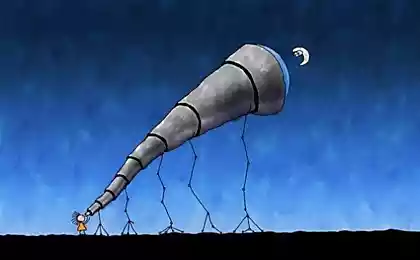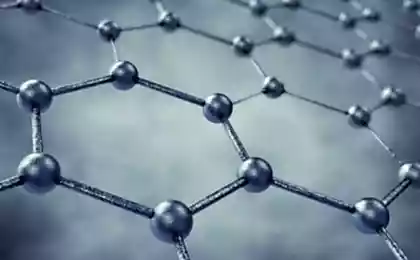719
The search for extraterrestrial life must begin with questions of life and death

What is life? An attempt to answer this question often brings people to a standstill. The impasse begins with the fact that in any language there are many definitions of the word "life". Here, for example, three different value.
- Is there life on Mars?
- Is there life in this body?
- Is it worth life to live?
The definition of "life" in these three cases are fundamentally different. In the first case, life means a collective phenomenon, the second refers to the ability of individual organism to metabolism and growth, and in the third life refers to the activity that the organism experiences throughout life. The first two usually have direct relevance to astrobiology.
The usual definition of life, used in the first case, means a system of material objects that can evolve, reproduce, mutate and selekcioniruut. This is what we looking for on Mars and other worlds. It would be interesting if such a life was independent of our origin. It is often noted that the definition of life as a system that is able to evolve, suggests that some isolated individuals do not represent "life". It is nonsense that confuses the first and second examples of life.
Many experts are of the opinion that effective search for life on other worlds requires that we must agree on what to call life. However, many agree that if we one day understand life, we will be able to produce a fully mechanistic and predictable theory of life. For example, take the same water. Water, as a rule, is determined by two atoms of hydrogen and one atom of oxygen. But life is not a simple substance like water, but rather a process like fire. The flame has no simple definition. If life is like a fire, even with a purely mechanistic and predictable theory, we will not be able to determine a simple closed form of fire. The search for life on other planets may be based on what makes life, not its definition. For example, it can build large specialized molecules like DNA and proteins.

Dr. Chris McCoy
"Viking", the only mission of search for life on other worlds, focuses on the second example. Biologists "Viking" looking for anything alive in the sample. It is assumed that if something lives, it consumes the organic matter and emit gases; has a metabolism. Thus, a working definition of "life" experiments "Viking" is based on the ability to metabolize in the conditions of the experiment.
But with this definition there are a number of problems. First of all, there are many non-biological processes, which consumes organic matter and produces gases. Secondly, our earthly experience has shown that many microorganisms are picky eaters and do not grow in the laboratory on food additives. Perhaps the most serious problem approach "Viking" is that it cannot detect dead organisms, which, unfortunately, are likely in this state on Mars, Europe or Enceladus. The search for life in our Solar system all you need to start with a definition of death.
What does it mean to be dead? This means that the organism once lived and consists of organic molecules that are specific for life — DNA, ATP, proteins. It biomarkers that could be convincing evidence that the organism was once alive and is the product system life, which has passed an evolutionary path. The search for such biomarkers formed the basis of the search methods life, which are being developed now. The challenge is to develop tools that can search for biomarkers earth-like life, and can also identify biomarkers unknown alien life.
Source: hi-news.ru
Eco and healthy life: what is the meaning of modern buildings
Scientists have synthesized a molecule of a new form























